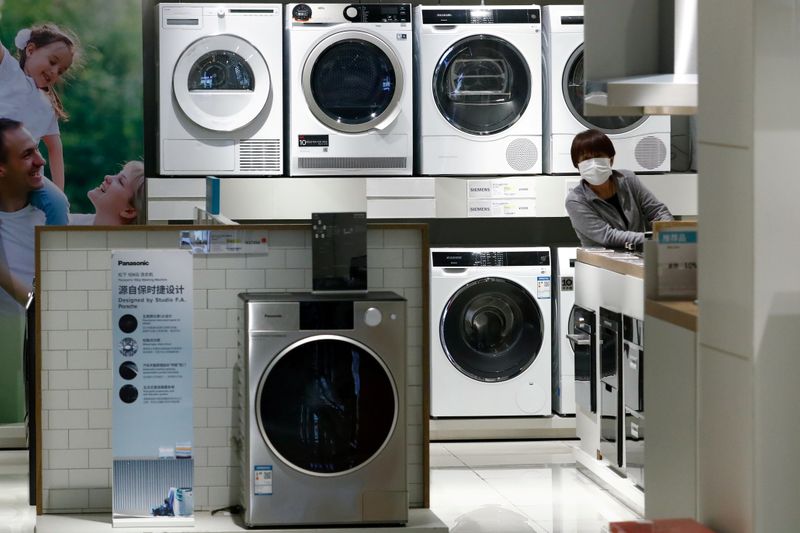By Sophie Yu and Tony Munroe
BEIJING (Reuters) - China is handing out billions of yuan in shopping coupons to support retailers crushed by the COVID-19 outbreak, but the subsidies are doing little to support the kind of discretionary spending needed to revive the economy.
Instead, a big chunk of the vouchers end up spent at supermarkets on daily necessities, with little boost seen in spending on restaurants, tourism, or bigger ticket items.
As Beijing scrambles to revive consumption and get its economy back up, analysts doubt vouchers will have much effect in restoring spending.
"Lots of coupons are spent on daily necessities," said Zhang Qidi, visiting researcher at the Center of International Finance Studies at the Central University of Finance and Economics in Beijing. "When consumers use coupons to purchase them, they could actually save the cash they'd spend otherwise."
China's draconian virus containment measures earlier this year threw the economy into its first decline on record in the first quarter.
Retail sales plunged 15.8% in March year-on-year, extending the decline seen in the first two months of the year. Specifically, spending on cooking oil, food and grains rose 19.2% while auto sales dropped 18.1% and catering plunged 46.8%.
To help the retail sector, local authorities, companies and e-commerce platforms in China have been handing out shopping vouchers.
Shen Minggao, chief economist at GF Securities, said as a short term solution, vouchers may spur consumers to shop, but not necessarily splash out.
"If the value of coupons is small, don’t expect it to be a big driver of consumption," Shen said.
Instead of creating new spending, coupons can bring forward consumption that would happen anyway. With coupons, people buy goods like cooking oil, rice and toothpaste that they would otherwise have paid cash for, undermining the stimulative intent.
In the past two months, the governments of Chongqing, Jiangsu, Guangdong and other provinces have rolled out coupons for locals to spend in restaurants and shops.
Winnie Du, a 28-year-old real estate agency employee, received five supermarket coupons worth 10 yuan ($1.41) each from Hangzhou city this month and used them on shampoo, hand cream and toothpaste.
"Many people are using vouchers when they pay," she added.
By comparison, the United States is sending checks for $1,200 to millions of Americans, while economically battered Hong Kong plans to give each resident HK$10,000 ($1,290) in cash.
HOW EFFECTIVE?
Citic Securities predicted in a report last month that 34.9 billion yuan worth of coupons would boost consumption by 62.9 billion yuan, or 1.8 times the value of the coupons.
However, the Hangzhou Commerce Bureau said the city had offered a subsidy of 257 million yuan in coupons by April 10 and believed it has increased spending in the city by 2.66 billion yuan.
Retail giant Suning, which sells electronics, clothing and also runs supermarkets, handed out 600 million yuan worth of vouchers in late March to around one million people and saw purchases of chicken breast, beef, beverages and snacks more than double in a week.
Li Daxiao, chief economist at Shenzhen-based Yingda Securities, said that China's economic priority should now be to encourage spending on food and daily necessities, while spending on bigger ticket items like automobiles could be helped in a later stage.
"Coupons are preferable in China compared with giving out cash like in the U.S., because China's saving ratio is high," Li said. "People need to consume in order to use the coupons, so it's more effective in simulating economy."
China's savings rate has dropped to 45% from 50% 10 years ago, but remains the highest worldwide, former central bank governor Zhou Xiaochuan said in a November speech.
Elsewhere, some Chinese cities have encouraged a two-and-a-half day weekend to boost consumption, as well as asking Communist Party officials to set an example by spending on food and shopping, and encouraging their friends and family to do the same.
